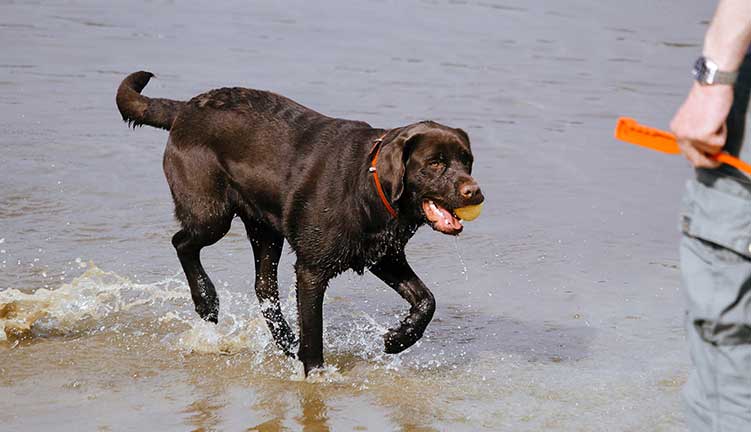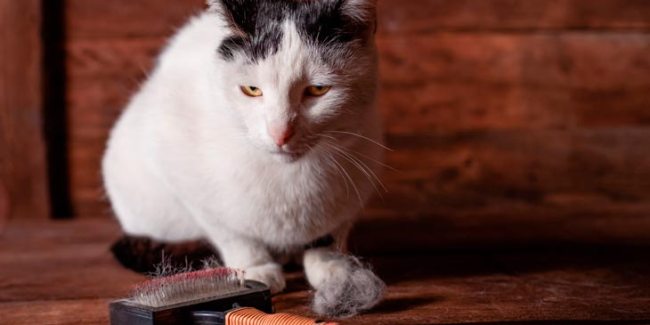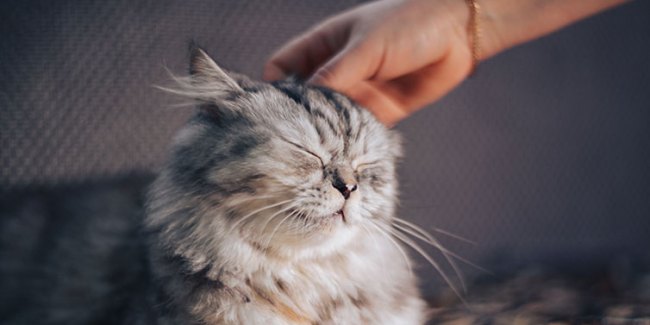Labrador vs Golden Retriever: What’s the Difference and Which Breed Is for You?
Are you looking to add either a new Labrador or Golden Retriever puppy to your family soon? Or maybe you’re just confused about what the difference is between these two commonly mistaken breeds and are looking for some clarification? Whichever category you fall into, read on to learn more about both their similarities and their differences.
DOG HEALTH

Posted by bravectosouthafrica – 27 November 2020
2 Distinct Dog Breeds With Plenty in Common
If Labradors and Golden Retrievers have been confusing you for years, don’t worry – you’re not alone. Both breeds share numerous similarities. For example, both are highly intelligent and frequently trained as working/service dogs, plus have a personality that simply lights up the whole room. It’s no wonder that they are some of the most popular dog breeds in the world.
It is a difficult choice to make, especially when they share such sought-after traits. Luckily the Labrador and the Golden Retriever share just as many differences.
Which side are you on? What breed is the best fit for your lifestyle? Learn more about the difference between a Labrador and Golden Retriever below with Bravecto®.
Golden Retriever vs Labrador Retriever: Physical Appearance
In some respects, Labradors and Golden Retrievers have a lot in common in terms of appearance as well. For a start, both breeds are retrievers, have folded ears, long tails, webbed feet and water-resistant coats – the last two of which are especially useful when enjoying one of their favourite shared hobbies: swimming!
Another physical feature they have in common is their soft mouths, which allow them to carry things around without damaging them. It’s the ideal trait for breeds who were selected for their hunting and retrieving skills.
A good way to tell a Golden Retriever and a Labrador apart is to study their profiles and general body shapes. You can see that both are medium to large-sized breeds but Labrador Retrievers have broader heads and a more muscular build, while Golden Retrievers have longer snouts.
The Labrador

The Labrador Retriever is the slightly larger and heavier one of the two breeds, with females generally being smaller in both cases.
On average, a Labrador weighs between 25-36 kg. Female Labs usually fall within the 25-32 kg weight range. When measured at the shoulders (i.e. withers), the Labrador Retriever typically measures in at 56-62 cm tall. Females can be found measuring in at the shorter end of this range.
Labs appear to have a stockier build than Golden Retrievers, which is at least partially due to their coat. Both Golden Retrievers and Labrador Retrievers have outer and under coats to keep them warm when swimming. The difference is that the Labrador Retriever has a much denser and shorter outer coat, which acts similarly to a wet suit that traps the dog’s body heat, keeping it warm even when swimming in cold waters. It beats out the Golden Retriever’s water-resistant coat by being ice-resistant as well.
A Labrador’s tail is long, thick and covered with short hair. In fact, it bears some resemblance to an otter’s tail. This thick tail act as a rudder, helping to steer the Labrador through the water.
In terms of coat colour, there are Labradors in yellow, black and chocolate. Their coats maintain their colour, even as they mature – the only change being the addition of a few grey hairs.
The Golden Retriever

The average Golden Retriever weights between 25-34 kg. Females usually fall into the 25-32 kg weight range. In terms of height, the average Golden Retriever measures in at 56-62 cm tall at the withers. Once again, females fall into the shorter end of the range.
Golden Retrievers are the more graceful breed in the Labrador and Golden Retriever duo. This is thanks to their more slender build, as well their coat’s appearance. The outer coat is long, wavy and luxurious, giving the breed a sophisticated look.
Adding to the Golden Retriever’s elegant air is its long tail, featuring equally long, pluming hair. Watch this breed as it walks and you’ll be mesmerised by its swaying tail.
Their coat colours aren’t as varied as the Labrador’s but there are different shades of golden and they can even be a rusty red. Once they’ve reached maturity, Golden Retrievers’ coats can become nearly white or a darker, golden-red hue.
Golden Retriever vs Labrador Retriever: Personality and Behaviour
The Labrador Retriever vs Golden Retriever debate won’t easily be settled by comparing the breeds’ general personalities or behaviours, as both breeds have a lovely temperament overall. If you are looking for a dog that’s affectionate and easy to train, then you can’t go wrong with either breed. Labradors and Golden Retrievers adore their owners and love pleasing them. They are also gentle and good-natured towards other animals and children. Both breeds make wonderful family pets.
The Labrador

As mentioned before, both breeds are energetic and love to join their humans on a stroll, run or adventure. However, when it comes to each breed’s energy levels, there is a clear difference.
Labrador Retrievers aren’t made for people who live a largely sedentary lifestyle or are away from home often as they have extremely high energy levels that need to be depleted. If not, they may well end up tearing your house apart. This means they aren’t necessarily the ideal breed for seniors looking to take life easy during retirement.
Lively, busy homes are where Labs thrive. Because of their excitable personalities and higher energy levels, Labrador Retrievers are more suitable pets for households with older children, as their boundless enthusiasm, stocky build and overall bounciness may be too much for little ones to handle.
Once they’ve reached maturity at around 18 months old, they do tend to mellow out a bit, but compared to Golden Retrievers they will still be very high energy.
This breed isn’t known to be as sensitive as Golden Retrievers.
The Golden Retriever

Both Labs and Goldens are friendly, kind, loyal and obedient, so it’s no surprise that they are some of the most popular dog breeds out there. Golden Retrievers are, however, the more patient, sensitive and gentle breed between the two.
It is through their interactions with young children that the breed’s gentleness shines. If you study them closely, you’ll notice how soft and gentle they are with little ones.
These dogs thrive in a calm and quiet environment. They will gladly tag along with you for your daily jog or walk and just as happily join you for some lazy cuddles on the couch afterwards. They can enjoy a relaxing day in and an exciting day out in equal measure. On the flip side of this, is the Labrador – the one who never tires out and is always ready to play fetch.
When their humans aren’t around, most Golden Retrievers are capable of keeping themselves entertained and will happily indulge in an afternoon nap.
Because they are such tranquil dogs, the Golden Retriever is a great fit for a wide variety of households.
Golden Retriever vs Labrador Retriever: Grooming Requirements
Both breeds are known for their water-resistant double coats, which means they go through two rather large sheds every year. This means that neither dog is exactly maintenance-free in terms of grooming but Golden Retrievers do need a bit more attention to keep those plumes looking luscious.
It’s important to establish a grooming regiment from the time Labs and Goldens are still pups, to get them used to the routine. This makes them easier to handle once they’re fully grown.

The Labrador
In the Labrador versus Golden Retriever debate, the Labrador ends up winning when it comes to a less intense grooming regiment.
A Labrador’s double coat requires a brushing every few days, unlike a Golden Retriever that needs to be brushed daily. Regular brushings are beneficial to your Lab because it removes any dead fur and keeps their coat feeling lovely and soft. Lucky for Lab owners, their dogs don’t have any areas with longer fur sections that need frequent trimming.
Labrador Retrievers shed just as much as Golden Retrievers. This is especially the case in the late autumn and spring when their coats are getting ready to adjust to either warmer or colder temperatures.
It is recommended that a dog like the Labrador be bathed at least once every six weeks.
The Golden Retriever
Golden Retrievers are blessed with long, luxurious coats with either straight or wavy hair. If you want to become a Golden Retriever owner, then you need to be willing to give your dog quite a bit of grooming attention.
Areas such as the Golden Retriever’s ears, neck, legs, paws and tail are especially full of feather-like fur and will need to be trimmed on at least a two-monthly basis. This prevents the hair from growing too long and uncomfortable. To prevent their coat from matting or becoming tangled, Golden Retrievers will need to be brushed daily or at least once every few days. An undercoat rake is the ideal tool to prevent matting.
As mentioned before, Golden Retrievers shed just as much as Labradors, due to their double coat. During their big, bi-yearly sheds both breeds will require more frequent brushing for around three weeks.
Golden Retrievers should be bathed at least once every four weeks to maintain the coat’s silky sheen.
Golden Retriever vs Labrador Retriever: General Health
You will be pleased to hear that both Labs and Goldens are relatively long-lived. This means there is more time for you and your best pal to spend together.
Both breeds are generally healthy but are predisposed to suffering from different genetic diseases. They do share a predisposition for certain health issues, including:
- Exercise-induced collapse (not too common, but both breeds have been known to suffer from the condition)
- Hip and elbow dysplasia
- Progressive retinal atrophy
The Labrador
Labrador Retrievers have an average lifespan of between 10-14 years.
One of the leading health issues experienced by Labradors is obesity. They are genetically prone to becoming obese, due to a specific gene mutation not found in other dog breeds. This genetic mutation causes them to be predisposed to an increased appetite, excessive weight gain and obesity.
Labs are considered to be somewhat healthier than Golden Retrievers because of the availability of genetic testing. Most of this breed’s health problems can be avoided by having the dog genetically tested, being committed to managing their weight and giving them enough exercise.
Some other health issues common to Labradors are:
- Entropion – An eyelid abnormality that causes the eyelid to roll inward and leads to irritation of the cornea
- Laryngeal paralysis – A health issue that affects older Labradors and leads to the partial paralysis of the voice box; it results in difficulty breathing, as well as a muffled bark
- Malformation of the elbows and knees

The Golden Retriever
The Golden Retriever has an average lifespan of between 10-12 years.
Golden Retrievers are, unfortunately, especially prone to developing cancer. It’s not yet fully understood which genes, in particular, are responsible for carrying the cancer either.
Keep in mind that there is no guarantee that your Golden Retriever will develop cancer within their lifetime. They simply have a genetic predisposition for receiving genes that may mutate at some point.
Other health issues Goldens are known to struggle with are seizures and skin issues like hot spots.

For even more information about the differences and similarities between Goldens and Labs, be sure to check out the following articles:
- Golden Retriever vs. Labrador Retriever: What’s The Difference? by Love Your Dog
- Golden Retriever vs Labrador: 10 Differences You Should Know by All Things Dogs
- The loving Lab vs. the good-natured Golden Retriever by Advantage Petcare
Keep You Golden or Lab in Top Condition With Bravecto®
Whichever side you choose in the Golden Retrievers and Labrador Retrievers debate, your dog needs protecting against awful external parasites such as ticks, fleas and mites. This is where Bravecto® comes to the rescue: whichever product you choose, your dog will receive fast-acting and long-lasting protection against these parasitic pests.
If you choose to treat your pooch to a single tasty Bravecto® Chew, they will remain tick, flea and mite-free for 12 weeks. Opt for a dose of the topical Bravecto® Spot-On for Dogs and your canine companion will be protected against ticks for 4 months and fleas for 6 months.
Labs and Golden Retrievers will both reap the benefits of being treated with Bravecto®. So once you’ve picked your side in the Golden Retriever vs Labrador debate, you know which product to choose to keep your new pup protected against parasites.
Subscribe to our Newsletter
Get to know your furry friend better! Sign up for all things dog- or cat-related.
The Hairy Facts about the dreaded hairball
12 April 2021
Help! My dog’s barking mad! Volume 2
12 April 2021
Your Itchy, Scratchy Cat – All About Cat Skin Problems
12 April 2021
The Dog’s Diet: A Bone of contention?
01 April 2021
Mango Fly Worms: How to Spot and Eliminate them
Posted on November 28,2019
Managing Mange And Mites In Your Dog
Posted on June 11,2018
Why Do Cats Purr and How? Learn What Your Cat Is Saying
Posted on October 14,2020
How to Get Rid of Ear Mites in Dogs
Posted on November 06,2019









